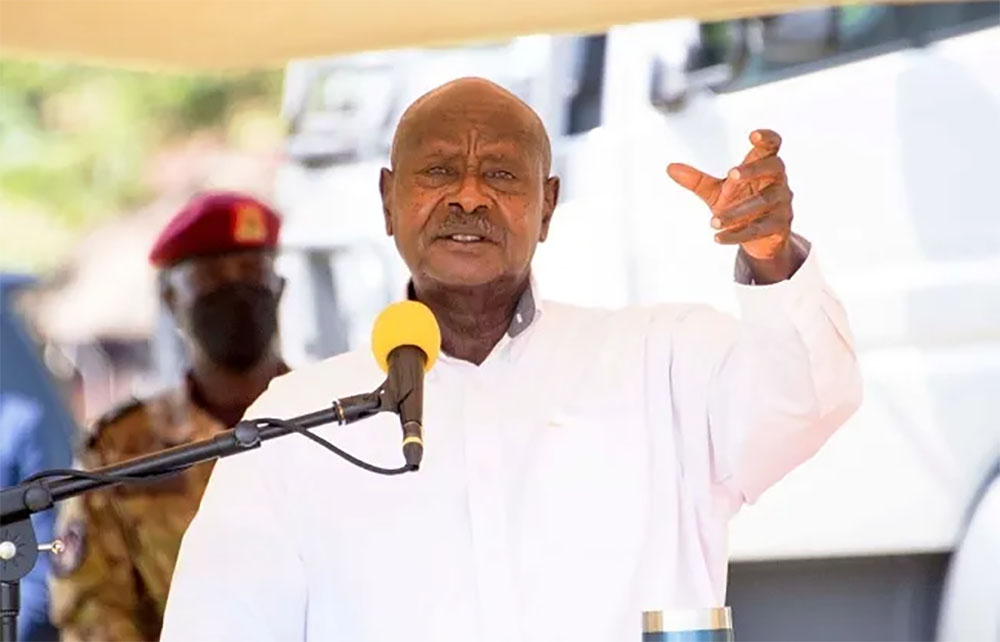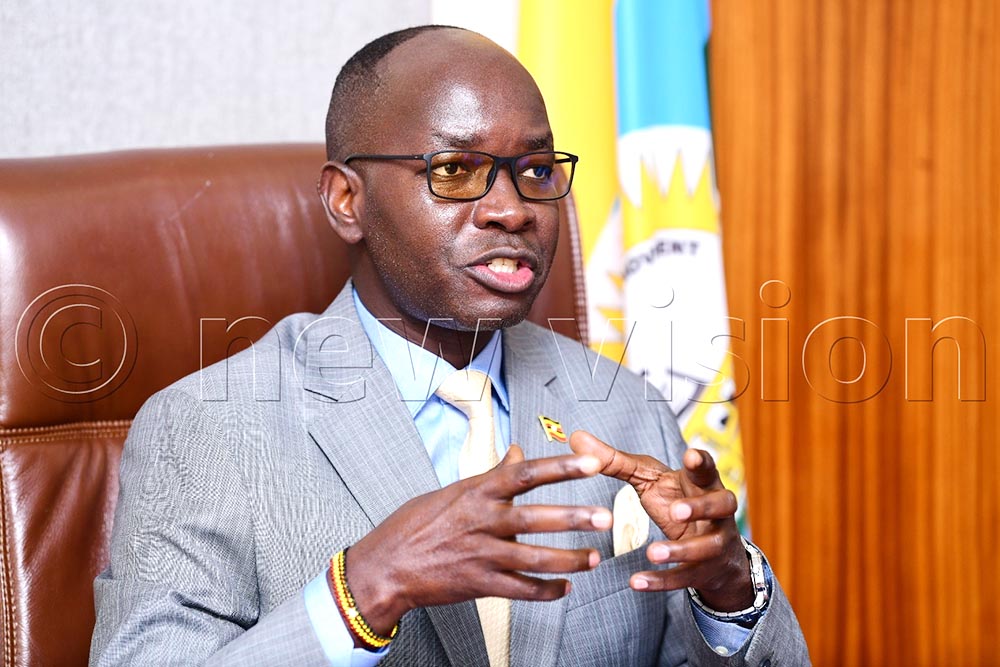Why Museveni has rejected proposal to reduce MP numbers
Kira Municipality MP Ibrahim Semujju Nganda has previously warned that if the appetite to create more constituencies does not stop, the August House will even become more expensive to cater for.
President Yoweri Museveni has reportedly rejected a proposal to downsize Parliament.
By Dedan Kimathi
Journalists @New Vision
KAMPALA - President Yoweri Museveni has reportedly rejected a proposal to downsize Parliament.
According to those who attended the National Resistance Movement (NRM) Parliamentary Caucus on Friday, August 1, 2025, the move was floated as a strategy to curb rising electoral violence and enhance Parliament’s effectiveness in executing its mandate.
According to insiders, the matter was raised during the National Resistance Movement (NRM) Parliamentary Caucus retreat at State House, Entebbe.
Concerned ruling party MPs are said to have floated the idea through Government Chief Whip Dennis Hamson Obua, but it was dismissed by the President.
“You know many members lost in the primaries, and the way the elections were conducted in many areas there are people who are disgruntled. That’s why you have seen there are many petitions before the tribunal,” An MP from West Nile observed.
Adding that “He (Obua) raised about four fundamental questions: First, are we going to continue conducting primaries in this manner? Second, what impact could this have on the future of the party? Third, whether NRM should consider adopting the methods used by other revolutionary parties in Africa, like ZANU-PF, CCM or the ANC in selecting their flag-bearers? And finally, will those who lost in the primaries rally behind the official flag-bearers? So that we don’t get very many independents.”
However, on the issue of reducing the size of Parliament, Dennis Nyangweso (Samia Bugwe Central, Independent) said President Museveni disagreed.
“We thought that would provide effective representation. However, the President was opposed to it. Because some of these numbers are big because of affirmative action, especially some communities that have been carefully represented in this house because of such decisions like the Ik, Baghendera of Bundibugyo,” Nyangweso disclosed.
“Of course, he was also of the view that although the numbers are big, they are not the problem. The problem is the mismatch between what is expected of members of parliament to do and what they are actually engaged in. That’s his biggest focus now,” he added.
This is not the first time that members within the ruling party have proposed reducing the size of Parliament. Last year, Rushenyi County MP Naome Kabasharira intensified pressure on the Government, calling for the expedited processing of her proposed constitutional reforms to cut Parliament’s size to 200 lawmakers.
President Yoweri Museveni
Previous moves
“Last year, I brought a motion to your office and you willingly received it. I was given a letter from your office that was sent to the Attorney General (Kiryowa Kiwanuka) to guide me because I was given a copy. We are closing Parliament today; the motion was to downsize this Parliament. The procedure I am asking is how long does the attorney general take to reply to such a small thing, and is it the only one we can rely on?” Kabasharira posed on December 19, 2024.
“It is now a year, downsizing by the way, it will not be you people. It will be those who will be coming, so you will not be affected. But we need to downsize, we are too many for the country,” she further submitted.
However, Deputy Speaker Thomas Tayebwa, who was presiding over the House that day, promised to liaise with AG Kiryowa Kiwanuka to this end.
“For clarification, we are not closing Parliament. Parliament will remain open, we shall only adjourn,” Tayebwa clarified.
“Number two, I will consult with the Attorney General and will ensure that he talks to you,” he added.
Bloated House
Kira Municipality MP Ibrahim Semujju Nganda has previously warned that if the appetite to create more constituencies does not stop, the August House will even become more expensive to cater for.
“MPs have risen from 214 in a space of about 15 years, and the clamour by those looking for jobs to create more constituencies is there… That’s why the budget for Parliament has risen from about shillings 300 billion in 2005 to almost a trillion shillings because you have to pay, increase staff and do this,” Semujju told New Vision in a previous interview.

Government Chief Whip Dennis Hamson Obua
“There is a need to restructure general administration in Uganda. Wages and salaries are shillings seven trillion; the money for recurrent expenses, that is, fuel, stationery, vehicles and so on, is shillings 13 trillion. So, you spend a total of 20 trillion, and another 20 trillion is for paying loans. What remains is about 12 trillion,” he explained.
NRM Primaries
On this subject, the President diagnosed that the problems which arose stemmed from dishonesty among some NRM flag aspirants.
According to Government Chief Whip Dennis Hamson Obua, his view was that the party needs to return to a culture of honesty and integrity.
“He appealed to or advised Ugandans in general and members of NRM in particular who are aspiring to lead to always seek for success through Godly ways. And to allow their actions to be based on honesty, trust and repentance,” Obua told journalists at Parliament on Friday.
“On the outcome of the recently concluded NRM Party primaries, the NRM Parliamentary caucus will wait for the NRM disputes tribunal to conclude all petitions before them. And thereafter, convene a meeting of the NRM Parliamentary caucus to discuss salient issues in regard to primaries and come out with a way forward,” he added.
